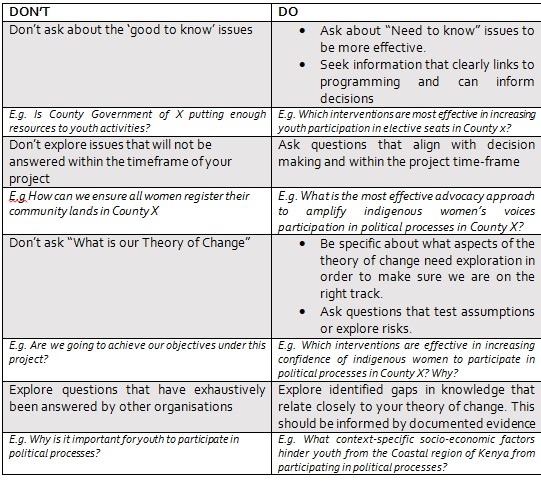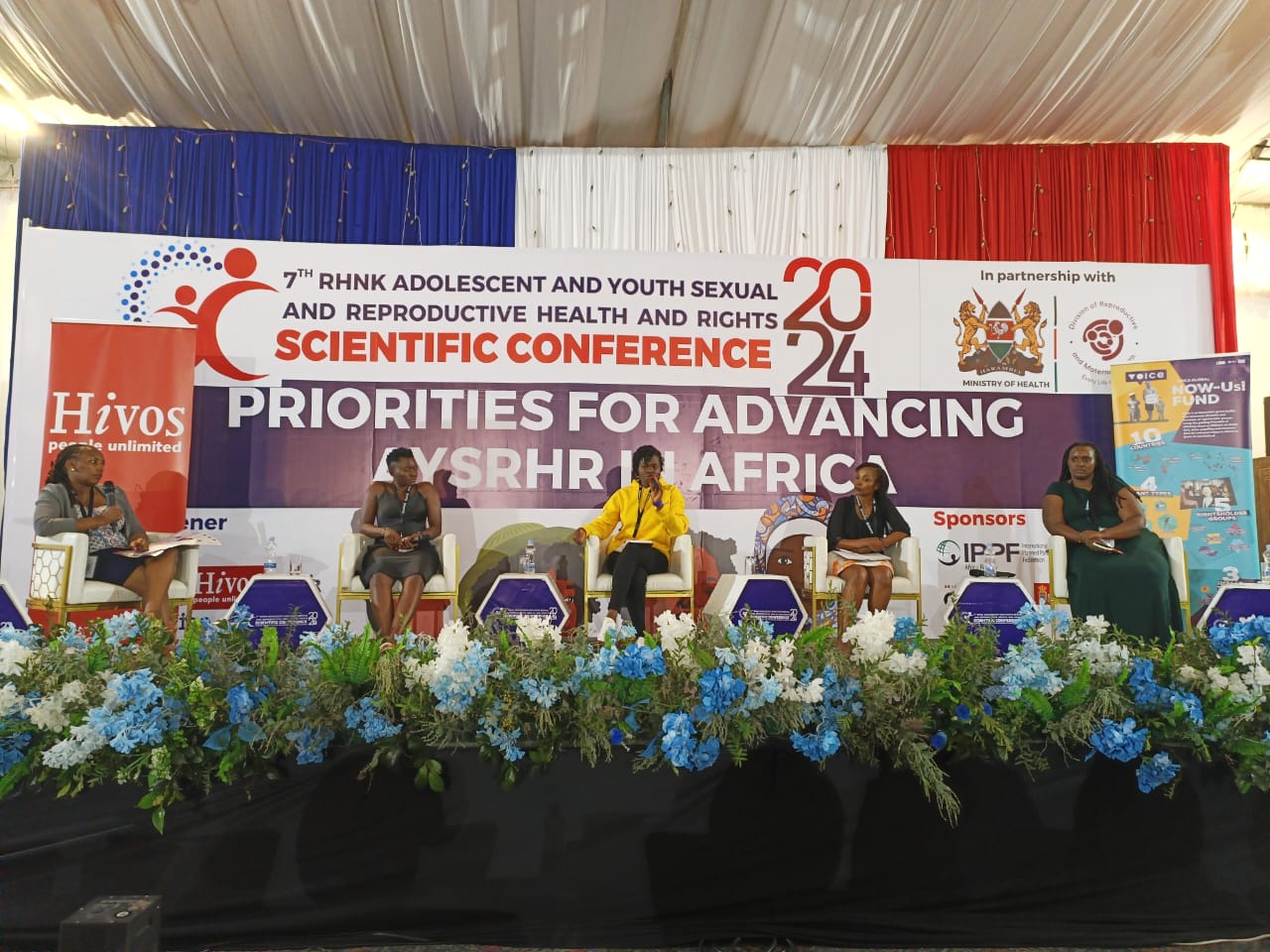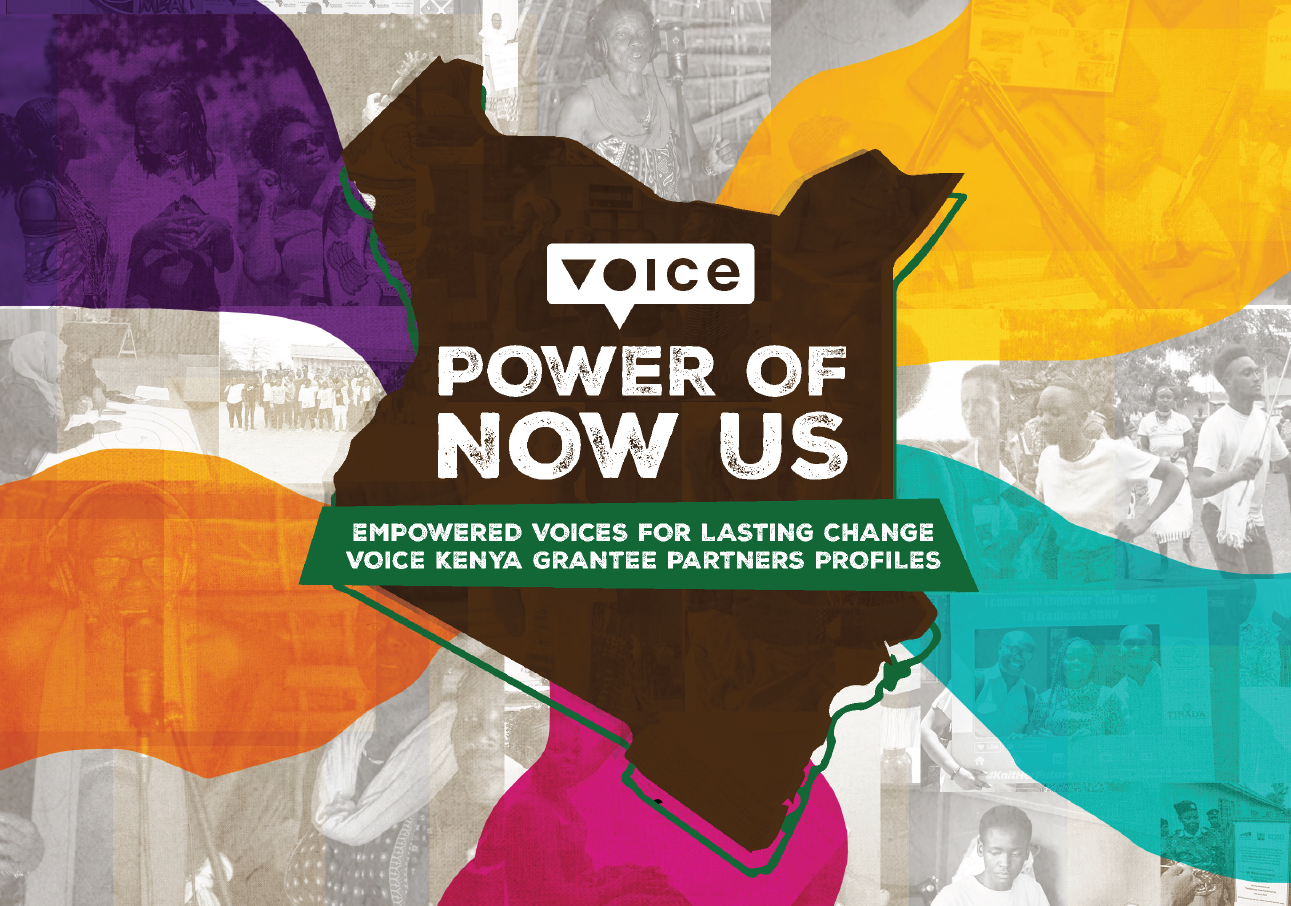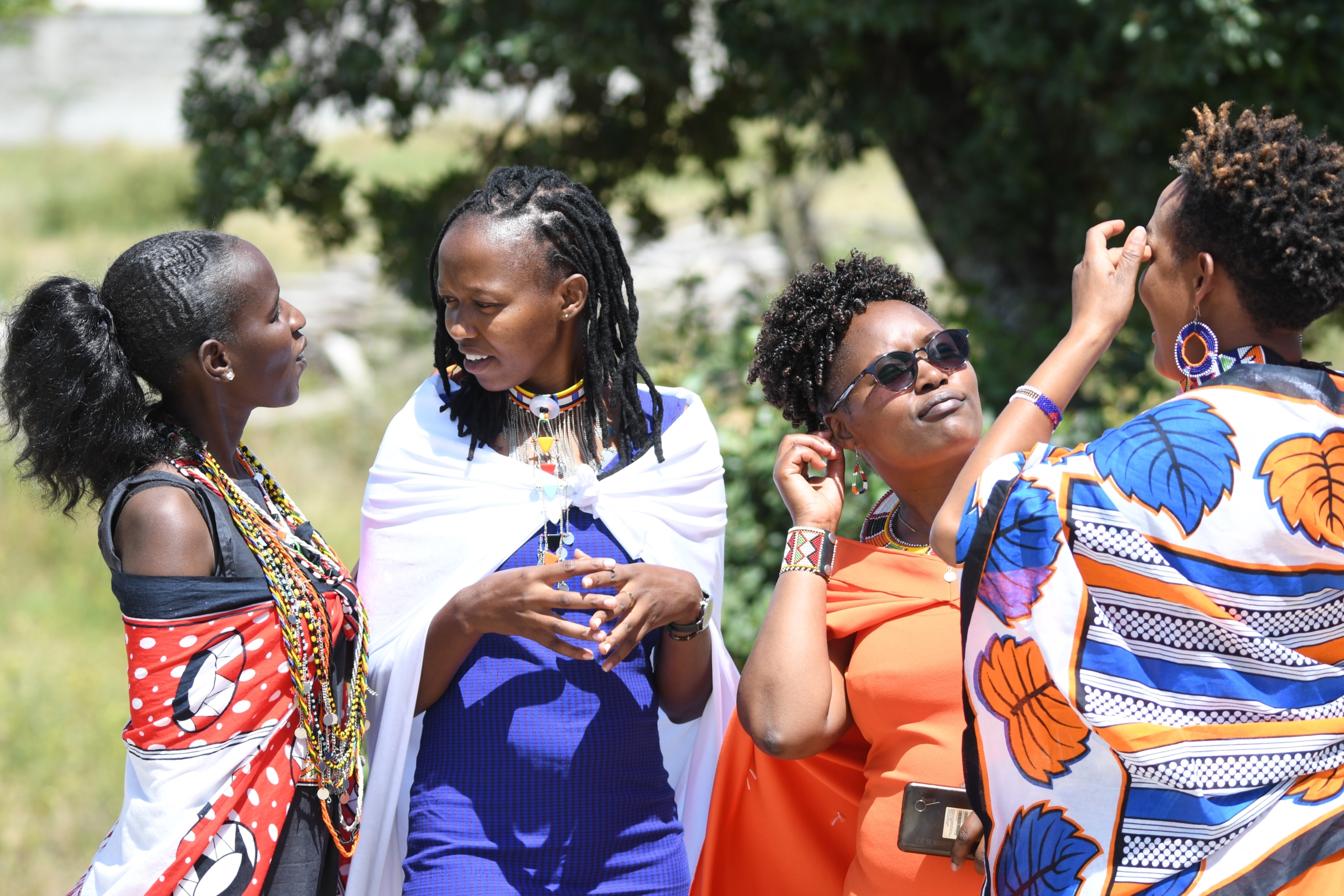Going beyond the basics: using learning questions to improve practice
By Dorina Prech, Linking and Learning facilitator- Kenya
With Linking and Learning being at the heart of Voice, it goes without saying that linking alone is not enough. Learning is equally crucial, therefore understanding it within the context of Voice helps us as facilitators, the grantees, and rightsholders to confidently say at the end of the project, that we have delivered on our learning agenda.
Experience from phase I of Voice granting demonstrate that grantees are likely to default and define linking when asked about their understanding of linking and learning. This is partly because as human beings we are motivated by our innate sense of community and a deep desire to belong to a group. Therefore, undertaking linking activities such as physical or virtual meetings, conferences almost comes naturally to us.
Learning on the other hand goes deeper and involves a lot more than connections and creating synergies. It makes us go inward, as individuals, organisations, and communities. It involves some individual and organisational introspection, a process that requires critical thinking and a lot of time. Learning involves examining gaps that need filling, an endeavor that is sometimes difficult to achieve. It is often harder to demonstrate that learning has taken place.
If you successfully learn how things should be done, you not only make it possible, you make it inevitable. One incredibly powerful toolbox introduced by Voice is learning questions. These are a set of questions that when concretely answered, can enable grantees to have a crystal-clear understanding of their projects, and improve their effectiveness during implementation.
Why learning questions are crucial
I use the analogy of learning questions as a compass when one is at sea. A good mariner knows that they cannot navigate the sea without it because it enables the mariner to check the position of their boat or ship to know if the boat is traversing the path of another boat or is on a collision course.
Similarly, learning questions provide a framework within which to begin project implementation and will be within reach as long as you are doing policy, advocacy, or community development work. Many organisations often look at learning only when they are organising an event, during review phases or when writing reports to the donor. This is when people pose and reflect on what they have learned during implementation.
Voice Linking and Learning promotes the development of learning questions at the onset, and the facilitators guide the grantees to improve on them along the way. This is premised on the fact that good learning questions help us clearly understand what we are trying to achieve as an institution or a community of practice. Therefore, learning questions makes us look at our work deeply which lead to better long-term solutions.
Asking good learning questions can also help stimulate creative ideas and ways of addressing common problems. Needs can be defined as the gap between what is and what should be. Good learning questions unearth hidden (conscious and unconscious) assumptions and/or beliefs. There are underlying assumptions that the grantees are working with, therefore examining situations closely helps uncover what is truly needed for transformative change to occur. For example, partners working on youth participation in governance, good learning questions will need to explore beyond the traditional hinderances to youth participation and look at opportunities that lead towards future improvement in youth participation in governance and democratic processes.
We learned that good learning questions fill critical knowledge gaps. Some of the questions to be explored by the grantees in their learning journey is whether the questions are relevant to the real work of the people (either staff or rightsholder groups) who will be exploring it? If yes, then questions need to be very clear and easy to understand. Employing critical thinking will go a long way in this process. Grantees will be facilitated to ask probing questions like “How do we know?” or “Is this true in every case or just in this instance?”
Good learning questions help in making better more informed decisions. An organisation that embeds a learning culture is more likely to motivate staff and other partners to make decisions informed by evidence. Developing good learning questions is a process, and you need to stay open and curious to the possibility that your theory of change could be wrong.
As we embark on crafting and implementing our learning questions over the next three years, we are guided by all the experiences from previous grantees thanks to a robust L&L platform already in place. We move forward knowing that learning questions are not an end in themselves. It is not working to futility, therefore, we need to be grounded that there are potential and real benefits arising from answering them. The way I see it, its that beyond the internal learning questions exploration, sharing these learning questions using the existing Voice Linking and Learning Platforms and beyond could mean that these questions are answered by – a win-win for all.
How to develop good learning questions









